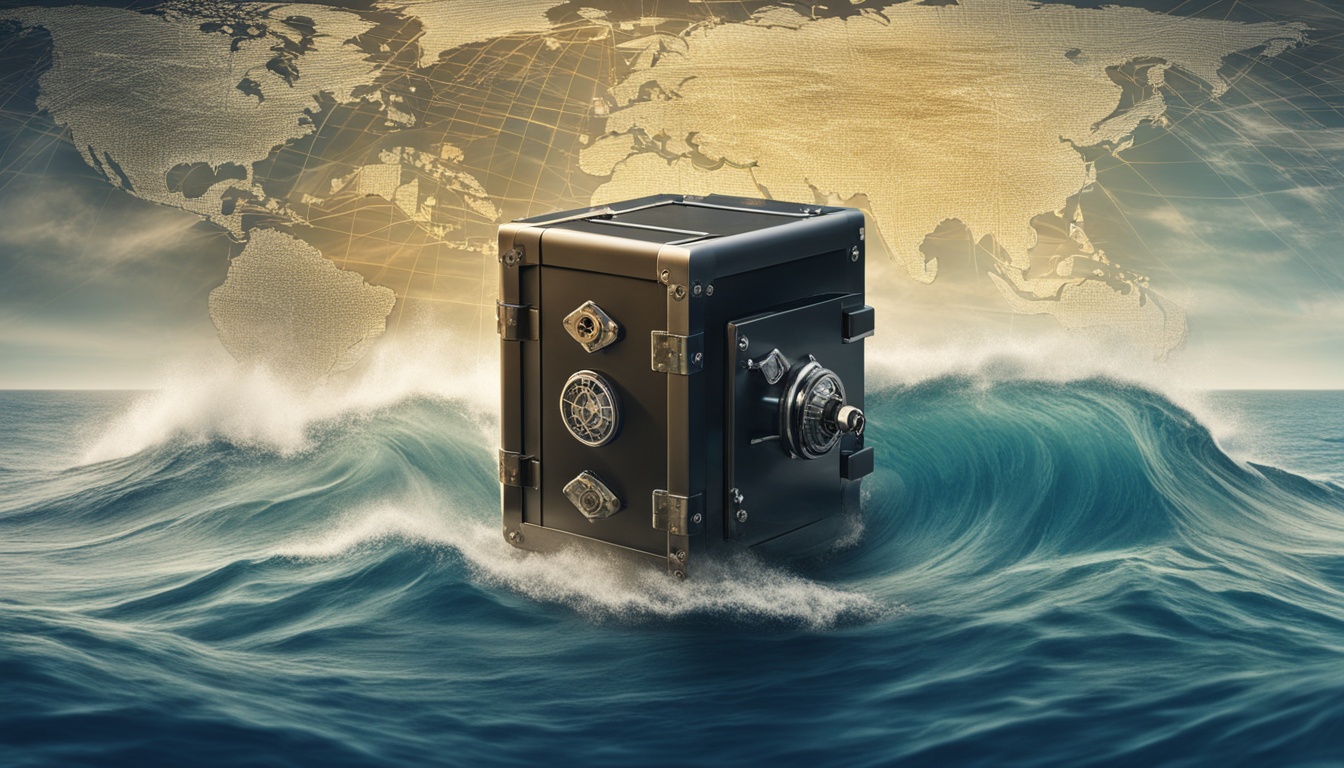Offshore banking accounts offer international financial services with privacy and asset protection
Offshore banking accounts are great for those wanting more privacy and safety for their money. They let people and businesses use a wide range of financial services from around the world. These services help keep their wealth safe from high taxes and political troubles. By using offshore accounts, users get strong protection for their money and keep it private.
It’s key to know the laws that rule offshore banking to fully benefit from it. For more info, checking out resources like collectible insurance can be helpful in keeping wealth safe.
Key Takeaways
- Offshore banking accounts enhance financial privacy and asset protection.
- Clients access a variety of international financial services through these accounts.
- These accounts guard wealth against taxation and political instability.
- Understanding the legal framework is crucial for the effective use of offshore accounts.
- Resourceful guides can provide deeper insights into wealth preservation strategies.
Understanding Offshore Banking Accounts
Offshore banking accounts open doors to a world of global finance. They let individuals and businesses look beyond their local banks. These accounts offer privacy, make moving money across borders easier, and protect assets. It’s key to know how they work if you’re thinking about them.
What Are Offshore Banking Accounts?
These accounts are kept in countries not where the account holder lives. They come in types like savings, checking, and investment accounts. They’re for those wanting to spread their banking options, keep assets safe, and keep their financial dealings private.
Offshore banks follow their own rules but still meet international finance standards. They protect their clients’ financial privacy. This makes them attractive for many.
How Offshore Banking Accounts Function
Using offshore banking accounts means following certain rules that are different from usual banking. Clients can easily access and manage their money online. This makes handling their finances across borders simple and secure.
Offshore banks offer benefits like lower taxes and strict privacy laws. These laws keep client information safe from others. This setup helps clients manage their money safely and efficiently.
Benefits of Offshore Banking for Asset Protection
Offshore banking has big perks for keeping your assets safe. It’s known for its strong privacy and confidentiality in financial dealings. Many places offshore have strict laws to keep your financial info private.
This means your financial details are safe from people who shouldn’t know them. It’s a secure way to handle your money.
Privacy and Confidentiality in Financial Transactions
Choosing offshore banking means your money is kept under wraps. It’s great for those who want to keep their finances to themselves. This privacy helps protect your assets from legal issues or false claims.
Offshore banks take your privacy seriously. They make sure your personal info stays safe, letting you manage your money quietly.
Safeguarding Assets from Political and Economic Instability
Offshore banking also shields your assets from political and economic ups and downs. By putting your money in stable offshore accounts, you reduce risks tied to your local market. This smart move helps protect your financial future from bad economic or political changes at home.
Offshore Banking Accounts: A Tool for Wealth Management
Offshore banking accounts are key for managing wealth well. They help people make the most of their money while keeping it safe and private. Using offshore trusts and shell companies, people can create plans that protect their wealth and cut taxes.
Strategies for Effective Wealth Management with Offshore Accounts
Creating a good wealth management plan with offshore accounts has several steps. First, using offshore trusts helps protect assets and make sure they go where the owner wants. Setting up shell companies adds an extra layer of privacy and safety for assets. Also, spreading assets across different places makes them safer and opens up more financial markets.
Tax Optimization Opportunities through Offshore Banking
Offshore banking also offers big tax benefits. Many countries have low taxes, helping people reduce their tax bills. With the help of financial experts, clients can use offshore accounts to pay less tax while following the law. This way, they can meet their financial goals better.
Choosing the Right Location for Offshore Banking
Choosing the right place for offshore banking is key to getting the most out of these accounts. Each spot has its own pros and cons. It’s important to know these when making a choice.
Popular Tax Havens and Their Advantages
Tax havens like the Cayman Islands, Switzerland, and Singapore are top picks for offshore banking. They stand out for several reasons:
- Low tax rates that help keep wealth safe.
- Banking secrecy for more privacy.
- Business-friendly regulations for easier global finance management.
Understanding Confidentiality Laws in Different Jurisdictions
Confidentiality laws differ a lot around the world, affecting how your financial info is kept safe. Knowing these laws is key when you’re into international banking. Some important things to consider are:
- The level of privacy each country offers.
- Rules for disclosure of account info to authorities.
- How well they follow regulatory compliance rules.
Getting through this complex world right is crucial. It makes sure your offshore banking meets your financial aims and follows the laws of your chosen place.
Conclusion
Offshore banking accounts bring big benefits for people and businesses looking to protect their assets and keep things private. These services help manage wealth safely and protect it from risks. They offer a way to secure finances in our complex global economy.
But, it’s important for those thinking about offshore banking to know the duties and effects it comes with. Understanding international laws and best practices helps use these services right and legally. Keeping up with changes is key to getting the most out of them.
If you’re looking to make a career in finance, including offshore banking, building your network and skills is crucial. Check out this guide to learn how to move forward in finance and find great job opportunities: career opportunities in finance and investment.



